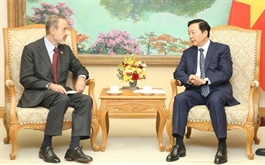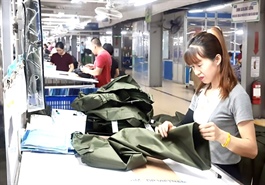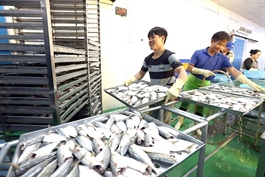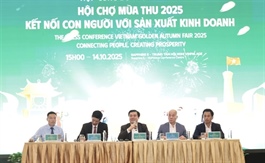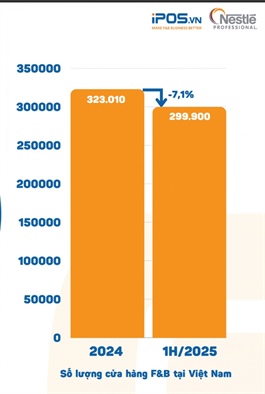IFAD and Vietnam set new course for rural development
IFAD and Vietnam set new course for rural development
A national roundtable in Hanoi has brought together key stakeholders to review more than a decade of IFAD–Vietnam cooperation and chart a course for future rural development.
On October 15, the Independent Office of Evaluation of the International Fund for Agricultural Development (IFAD), in collaboration with the Vietnamese government, convened the Vietnam Country Strategy and Programme Evaluation roundtable. The event gathered representatives from ministries, development partners, provincial authorities, and local communities to assess IFAD-supported projects from 2012 to 2024 and outline new priorities for inclusive and climate-resilient rural growth.
The independent evaluation confirms that IFAD’s investments have made a lasting impact on rural livelihoods, helping smallholder farmers boost productivity, diversify incomes, and strengthen their resilience to climate and market shocks.
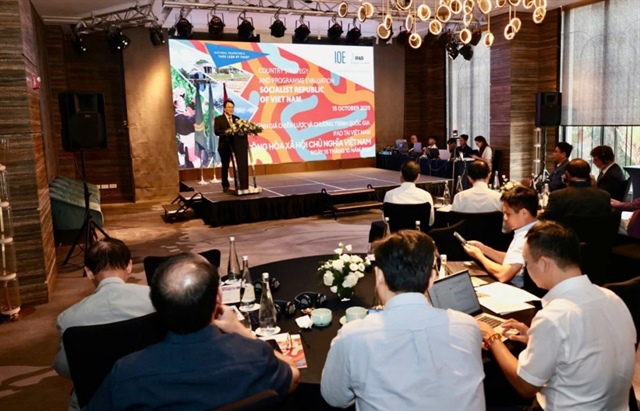
Deputy Minister of Finance Tran Quoc Phuong speaking at the event. Photo: IFAD |
“The evaluation shows that Vietnam’s achievements in rural development are rooted in strong ownership, local innovation, and inclusive partnerships,” highlighted Dr Indran A. Naidoo, director of the Independent Office of Evaluation at IFAD.
Paolo Silveri, lead officer at the Independent Office of Evaluation, IFAD, added, “The next phase will focus on scaling up what works – climate resilience, digital transformation, and inclusive value chains – while ensuring that women, youth, and ethnic minorities continue to be central to change.”
Ahead of the roundtable, the evaluation team visited the Mekong Delta area, where they witnessed firsthand some of IFAD’s most tangible results in action. The delegation toured RYNAN Technologies in Tra Vinh to observe climate-smart tools such as salinity monitoring buoys and automated irrigation systems, and later met with coconut farmers and processors in Ben Tre who are advancing sustainable value chains with IFAD’s support. The visit showcased how innovation, partnership, and community leadership are turning rural adaptation into real, measurable progress.
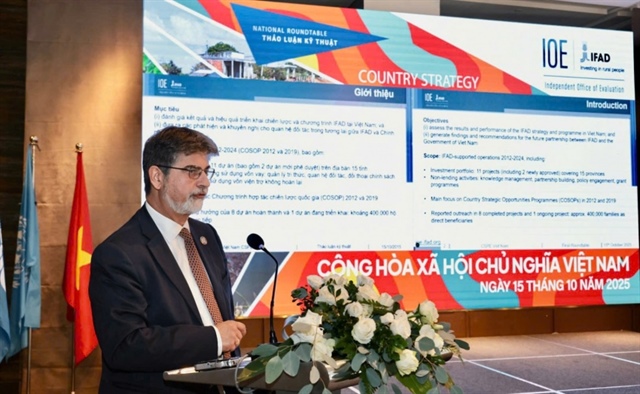
Paolo Silveri, lead officer at the Independent Office of Evaluation, IFAD. Photo: IFAD |
At the roundtable, the government reaffirmed its commitment to deepening cooperation with IFAD and maximising the effectiveness of its investments.
“IFAD has been a trusted partner in Vietnam’s rural transformation for more than 30 years,” said Tran Quoc Phuong, Deputy Minister of Finance. “Its projects have demonstrated that the right investments, when strategically targeted and locally owned, can deliver outsized impact. Our shared goal now is to replicate and scale up these successful models – mobilising additional resources for innovation, climate adaptation, and rural competitiveness, so that rural people can thrive in a changing world.”
From the provincial perspective, leaders stressed the importance of coordination, inclusion, and local ownership to sustaining results.
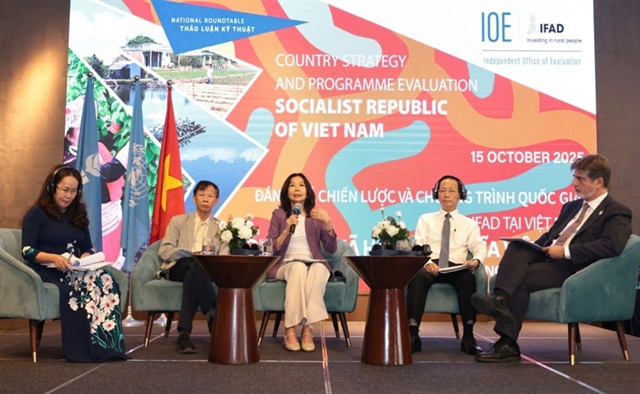
Photo: IFAD |
“In provinces such as Vinh Long, IFAD’s support has helped bridge the gap between farmers, enterprises, and government schemes,” said Nguyen Truc Son, Vice Chairman of Vinh Long People's Committee. “Following the merger of Vinh Long, Ben Tre, and Tra Vinh into one administrative province, we see even greater opportunities to integrate successful models and expand their reach. What makes this partnership effective is its focus on people – empowering communities to lead their own development, strengthen cooperatives, and make rural growth more inclusive and sustainable.”
“The Country Strategic Opportunities Programme for Vietnam or is a cornerstone of our partnership, guiding strategic investments that respond to the country’s evolving rural challenges,” said Reehana Raza, regional director of the Asia-Pacific Division at IFAD.
“It reflects our shared commitment to inclusive growth, climate resilience, and innovation -ensuring that IFAD’s support continues to empower rural communities and strengthen national development priorities,” Raza added.
The roundtable brought together over 100 participants, including representatives from the Ministry of Finance, Ministry of Agriculture and Environment, provincial people’s committees, mass organisations, and development partners.
Discussions focused on sustaining IFAD’s impact by aligning with Vietnam’s national strategies for green growth, digital transformation, and rural modernisation.
The findings also emphasise Vietnam’s growing role as a leader in sharing knowledge and experience on rural transformation. IFAD’s support has helped the country translate lessons from local projects into national policies, while encouraging cross-provincial collaboration and regional learning.
Participants also discussed the Agreement at Completion Point – a formal commitment between IFAD and the government to integrate evaluation findings into the design of a new joint strategy and investment drive. This process will ensure that evidence-based lessons from the past decade directly inform the design of new projects and partnerships.
“Vietnam and IFAD share the same vision: a prosperous, inclusive, and resilient rural sector where no one is left behind,” said Dr Indran A. Naidoo, director of the Independent Office of Evaluation at IFAD.
- 16:37 15/10/2025







